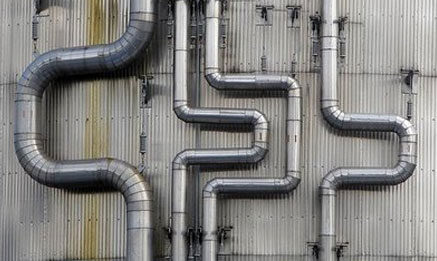Selecting the Right Metal Materials for Custom Bending Projects
One of the most important parts of the process of custom metal bending is the selection of the right material. It is as crucial as the bending process itself.
Precision Bending, a leader in the field, emphasizes the importance of material selection for the success of any custom bending project. We take a look at why material choice is vital and how it impacts the outcome of a bending project.
Understanding the Material's Properties
The first step in selecting the right material is understanding its properties of the metal including varying levels of strength, ductility, malleability, and corrosion resistance. For example, aluminum is lightweight and has excellent corrosion resistance, making it ideal for aerospace applications. Stainless steel, known for its strength and corrosion resistance, is a popular choice for automotive, architectural and industrial applications.
Precision Bending considers the specific requirements of each project to determine the most suitable material. Factors such as the environment in which the final product will be used, the desired aesthetic appeal, and the required strength and durability are all taken into account.

The Impact of Material on Bending Process
The bending process varies significantly depending on the material chosen. Some materials can be bent easily, while others, like high-carbon steel, require more force and precision. The thickness of the material also plays a critical role. Thicker materials are more challenging to bend and require specialized equipment.
At Precision Bending, we use state-of-the-art machinery, an extensive range of dies and advanced techniques to accommodate a wide range of materials and thicknesses. Our team has the expertise to adjust the bending process to ensure the integrity and accuracy of the final product, regardless of the material.
Cost Considerations
In addition to the material properties, cost is another factor in material selection. Some metals are more affordable than others, but it's important to balance cost with the requirements of the project. For instance, while aluminum is more expensive than mild steel, its lightweight nature might reduce shipping costs, making it a more economical choice in the long run.
Our team at Precision Bending works closely with clients to identify the best combination of cost-effective material and project requirements without compromising on quality or performance.
Compliance with Standards and Regulations
Another factor the Precision Bending takes into consideration is compliance with industry standards. For many industries, there are regulations that dictate material selection. Certain applications, especially in the medical, aerospace, and automotive industries, have stringent requirements for ASME code, material quality and performance.
Precision Bending has extensive knowledge of these standards, and works with clients to ensure the proper testing is done to meet the necessary regulations and develop quality benchmarks.
Many Facets for Custom Bending Projects
The selection of the right material for a custom bending project is a multifaceted decision that impacts every aspect of the project, from the bending process to the final product's performance and longevity.
Precision Bending’s expertise in material selection ensures that each project is not only successful but also efficient, cost-effective, and environmentally responsible. Trusting a professional with the knowledge and experience to make the right material choice is crucial in achieving the desired outcome of any custom metal bending project.
Contact our team today about your custom metal bending project.
